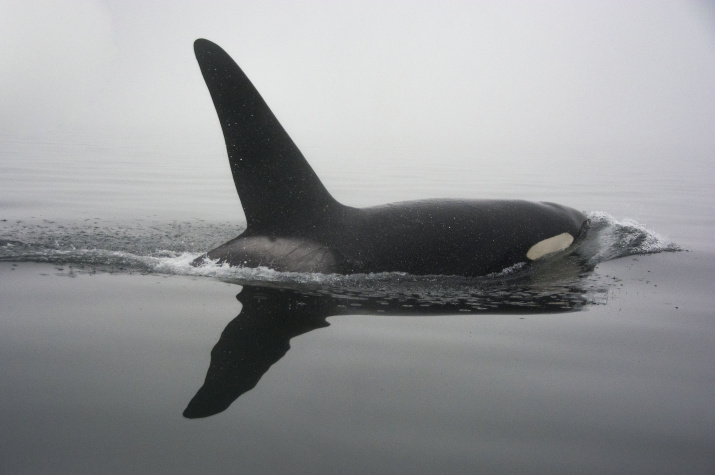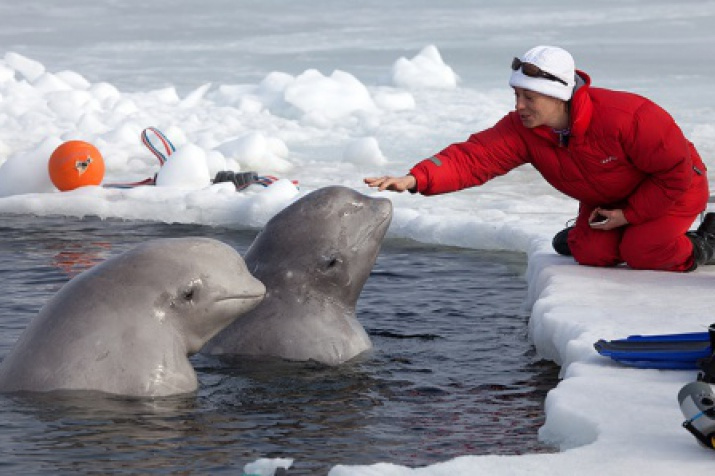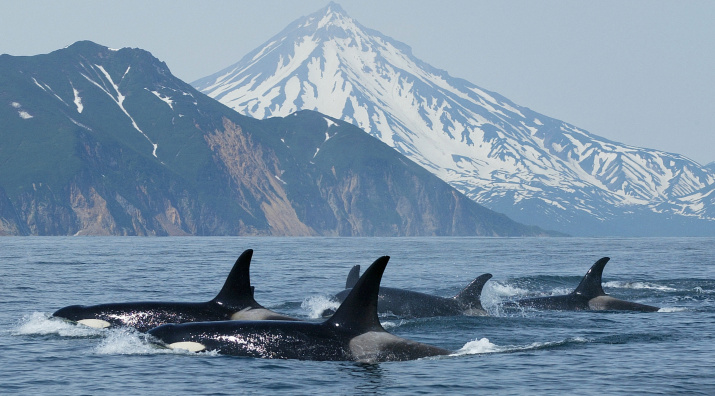Rosrybolovstvo held a consultation of scientists in Moscow on April 25. The experts decided to release killer whales and belugas from the Srednyaya Bay not earlier than June 2019. The Consilium reviewed the recommendations that had previously been developed by a team led by oceanologist Jean-Michel Cousteau. The physical condition of the animals was taken into account.
Scientists have concluded that there are no contraindications for the release of killer whales and belugas in their natural habitat. However, it is necessary to develop an individual plan for each animal to return to the wild. A general recommendation was made at the meeting - the beluga whales and killer whales should be released at about the same places where they were caught. This is in the north-west of the Sea of Okhotsk. Because of ice conditions it will be possible no earlier than June.
There were installed floating enclosures near the west coast of the Srednyaya Bay. 11 killer whales and 87 belugas (including cubs), illegally caught in the Sea of Okhotsk, were kept there since the summer of 2018. They were tamed there before being sold to oceanariums abroad, most likely China and Japan.
Three little belugas disappeared in December. Law enforcement authorities decided that they could swim through the holes in the enclosure. Also, the Vladivostok Interdistrict Environmental Prosecution established that one of the caught killer whales disappeared.
More than 1 million Russians have signed a petition demanding the release of animals.
Steven Spielberg, Pamela Anderson, Leonardo DiCaprio went up against the "whale prison".
The situation of the "whale prison" is monitored by Russian President Vladimir Putin, and his press secretary, chairman of the Media Council of the Russian Geographical Society, member of the Board of Trustees of the Society Dmitry Peskov, raised the topic of studying and preserving rare species of animals at a meeting of the Board of Trustees on April 23. He told about the current situation with belugas, snow leopards, Amur tigers, Far Eastern and Persian leopards, polar bears. Dmitry Peskov noted that the RGS annually allocates grants to support projects to restore the populations of the Red Book animals. Also he stressed that it is necessary to continue the research of belugas and killer whales - it is currently not known exactly how many animals live in nature. It is very important to understand, because decisions on whether to issue quotas for their catch or not should be made in accordance with scientific evidence.



